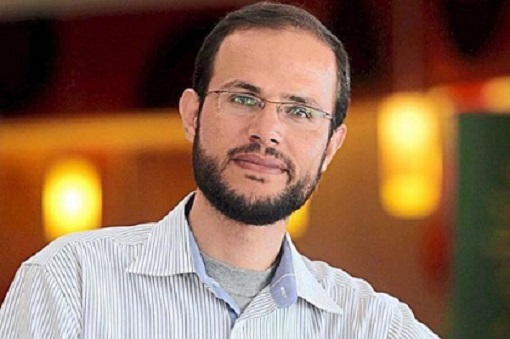
Maurice Sendak and Tony Kushner have done a marvelous job of recreating the magic that is Brundibar in their new book. It narrates the story on which the opera of the same name is based:
Two children, Pepicek and Aninku, have no money to buy milk for their ailing mother. Seeing passers-by giving coins to the organ grinder Brundibar, the children try to earn money by singing on the street corner. Brundibar chases them away, but a friendly Dog, Cat and Sparrow help them round up the other children in town, who form a choir large enough to compete with the organ grinder. When Brundibar steals Little Joe’s hatful of coins, the children overpower him.
–Allan Kozinn, New York Times
The original music was composed by Hans Krasa, a Czech-Jewish composer imprisoned in Terezienstadt. The opera was performed by a children’s choir of camp inmates in front of an audience of Nazi guards. The story of the work and its performance is one of the remarkable and macabre events that seemed to happen in the midst of horrors like the Holocaust. Not least of the horrors: the composer of this wonderful music and those who performed it would soon face extermination by those same Nazis who enjoyed their performance of this work.
Brundibar is an odd work in its way. It is about children and performed by children. Yet the story is so dark that it is hard to imagine telling it to a young child without a great deal of preparatory explanation. First, there is the deathly ill mother with her two young children who live in abject poverty. Then there are the children assaulted by the terrible bully, Brundibar. I’ve read the book several times to my nearly 4 year old son. He doesn’t know what to make of it and certainly doesn’t like it as much as his dinosaur books. But I feel there are many troubling things he will meet and hear about in life, one of these certainly being the Holocaust. And I don’t want to shrink from the telling of this sordid tale to him. I don’t know how I can explain it to him when he’s old and wise enough to ask. But I’m going to have to try. And it seems that by reading this book to him I can begin in an artful way to approach the subject.

Finale of Brundibar original production (credit: Terezin)
Sendak’s drawings are extraordinary and capture both the wonder and macabre nature of the work. But what I especially cherish is the original libretto’s utterly brave in-the-face-of death assault on the bullies of the world who oppress the innocent Aninkus and Pepiceks:
Remember, please be brave
And bullies will behave!
French horn and violin
Bassoon and clarinet!
The wicked never winWe have our victory yet
Tyrants come along, but you just wait and see
They topple one-two-three
And thus we end our song
Our friends make us strong.

page from the Sendak-Kushner Brundibar (credit: Bill Moyer’s NOW)
They believe they’ve won the fight,
They believe I’m gone–not quite!
Nothing ever works out neatly–
Bullies don’t give up completely.
One departs, the next appears
And we shall meet again my dears!
Though I go, I won’t go far…
I’ll be back.
Love,
Brundibar

The message would’ve been clear to anyone who listened carefully in that original audience. But perhaps those highly cultured German guards weren’t so highly cultured after all. Adolf Hoffmeister, who wrote the libretto, noted that while the children might have vanquished Brundibar this time, that new and more dangerous Brundibars would arise to take his place; and that we must be ever vigilant to prevent their ascendancy. If you consider that Hoffmeister wrote this in 1938 before he knew the full measure of Hitler’s murderous despotism, you’d have to say that Brundibar is one of those rare prescient works of art which foresees history and warns us of what lays in store.
The Saskatchewan Music Educators Association will host performances of Brundibar in May, 2005. In preparation for this event, it has created a remarkable website containing documentary resources about the opera including full curriculum outlines for grades 5-8.
Bill Moyers’ late, lamented NOW program on PBS carried an interview with Sendak about the making of this book. The website contains other interesting background material about the project. Kushner’s and Sendak’s adaptation was also turned into an opera of its own by the Chicago Opera Theater. The original operatic version of Brundibar has also been performed here in the States. Allan Kozinn wrote a wonderfully comprehensive and appreciative review for the New York Times of a production that toured in 2003.
Brundibar the opera has been recorded numerous times. On doing some online research, the accompanying recording was recommended at a classic music review site.
Please Note: This mp3 blog showcases my love for world music. I hope you come, listen, enjoy, and follow the links to buy the music. Such good deeds reward the artists I feature here and allow me to cover a small portion of the expense involved in maintaining this blog.







